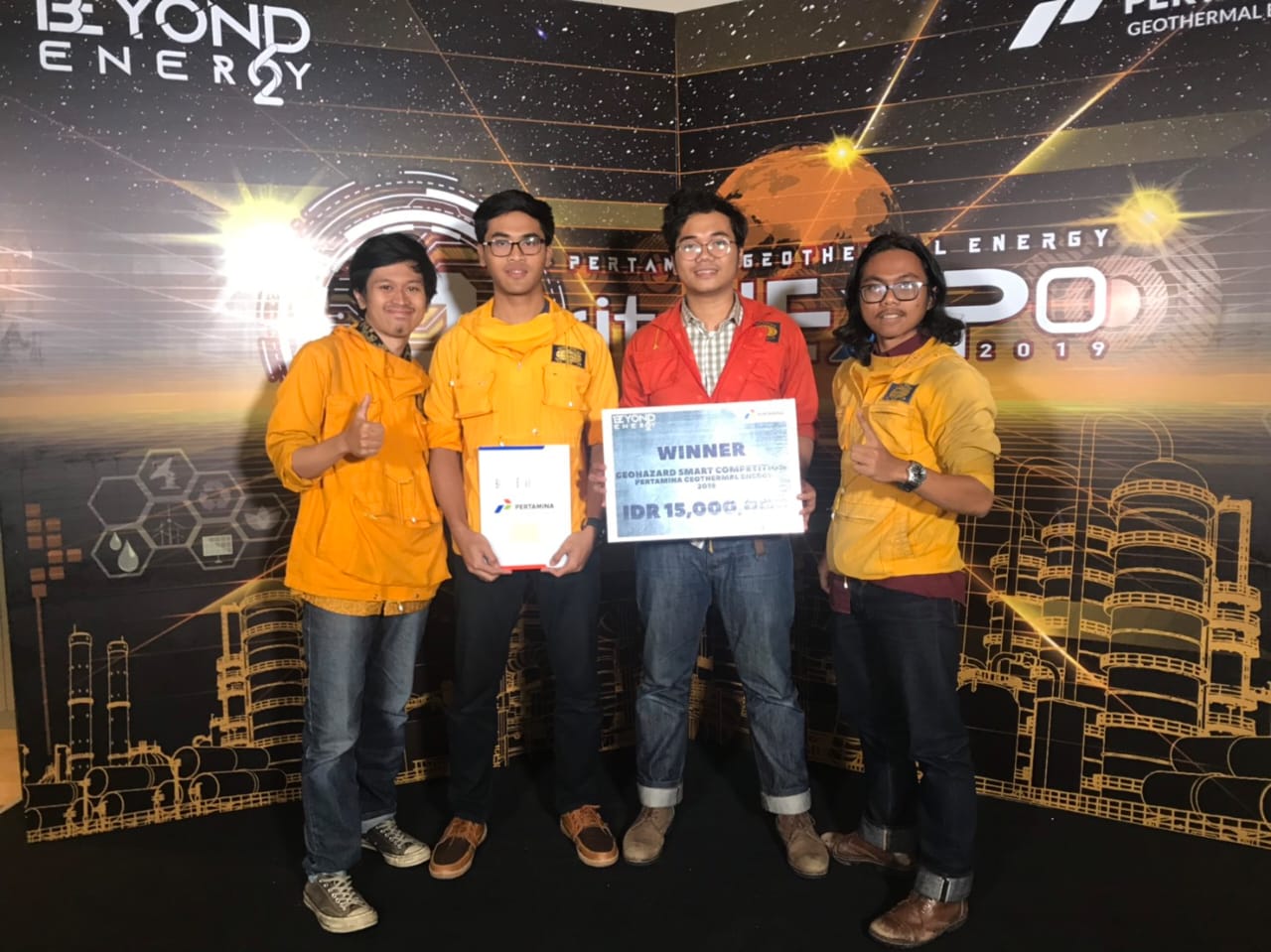FTTM Students Winning Geohazard Smart Competition 2019
BANDUNG, itb.ac.id – The Bandung Institute of Technology (ITB) team won first prize at the 2019 Geohazard Smart Competition held by PT. Pertamina Geothermal Energy. The participants took part in a competition related to a case study of an avalanche that occurred in one of the assets of PT. Pertamina Geothermal Energy precisely in Hululais, Bengkulu. The participants are required to make landslide vulnerability maps in the given work area, then make a landslide model or simulation, and make mitigation especially to protect the assets of PT. Pertamina Geothermal Energy.
The ITB team consisting of Endry Rizky Ramdhan (Geological Engineering 2016), M. Fadhil Rachman (Geological Engineering 2016), Fadhlan Rahmany Binadzier (Geological Engineering 2017), and M. Ababil Akram (Geophysical Engineering 2016) initially got information about this competition from one of the ITB Geology Engineering alumni. From there they decided to take part in the competition because it was in accordance with their interests, knowledge gained during the lecture.

The Team
“We made an extended abstract with the title Mapping of Soil Movement Vulnerability Using the Weight of Evidence Method, Modeling of Soil Movement Mechanisms, and Its Mitigation in the PGE Hululais Geothermal Field, Bengkulu,” Endry said.
In detail, Endry explained in the extended abstract, the team explained the results of the study of areas which were prone to occur in Pertamina’s work area in Hululais. The results of the study are in the form of landslide vulnerability maps containing the division of regions based on the level of vulnerability of landslides. Then the avalanche model that can occur there uses an application by entering known parameters.
“And finally we make a mitigation analysis that we think can be done and in accordance with the conditions there, especially to protect Pertamina’s assets,” said Endry.
With a short preparation time, there were many challenges they had to face while participating in the competition. “The challenge we face is the division of time to work on the problems given because we are currently in college and there are also many assignments to be done. Then the questions given have also never been done before so we have to learn from the beginning, especially in the method of making landslide vulnerability maps and also modeling landslides, “he explained.
Their process in participating in the competition was not easy. In the beginning the competition began in two stages, consisting of the work on the questions and presentations. The questioning time starts from 4 to 25 November 2019. Then Pertamina announced five participants who passed to the next stage (presentations), namely Bengkulu University, UPN Yogyakarta, Pertamina University, UGM, and ITB. The presentation was conducted on 6 December 2019 at the Four Points Hotel, Dago. The results of the presentation stage are used to determine the team that deserves to be champions. The teams that won 1st, 2nd, and 3rd were then invited to Jakarta to take part in a knowledge sharing event to coincide with the Pertamina Geothermal Energy anniversary celebration.
“Through this competition, we gained new knowledge that can be applied in the community, namely making landslide vulnerability maps in an area and modeling landslides so that mitigation can be carried out effectively and efficiently. “Landslide vulnerability maps, avalanche models and mitigation can be used as a reference in future development planning,” he said.
In addition, they also hope to give Pertamina a new perspective on the condition of the landslide in Hululais so that the results of the research can be applied to protect Pertamina’s assets there.
“Hopefully in the future ITB students can continue to produce research work that can be applied in the community so that it can help in providing solutions to real problems that exist in our country. Because high achieving students are not students who get good grades or win many competitions, but high achieving students are useful students for the community (Festian, 2019), “he added.
Reporter: Christopher Wijaya (Pharmaceutical Science and Technology, 2016)

